Quote of the Quarter
“It doesn’t take much to make me happy. Six meals a day. Ten hours of sleep. A pair of yoga pants, complete solitude, and no social obligations whatsoever.” (message from one cop to another)
CHILDREN!
Cops acquire the ability to detach from emotional aspects of many of their assignments or to use justification as ways to cope with the extremely challenging situations they regularly face. These are learned traits and a requirement to stay emotionally healthy.
Detaching can keep the officer focused on the details of the case and away from absorbing the emotional content present. Justification takes terrible situations and reframes them into something they can live with. If someone who has been drinking, drives their car at a high rate of speed into a ditch, and was not wearing a seatbelt, at least the officer can justify saying someone was foolish and their life ended in tragedy, but it was their fault.
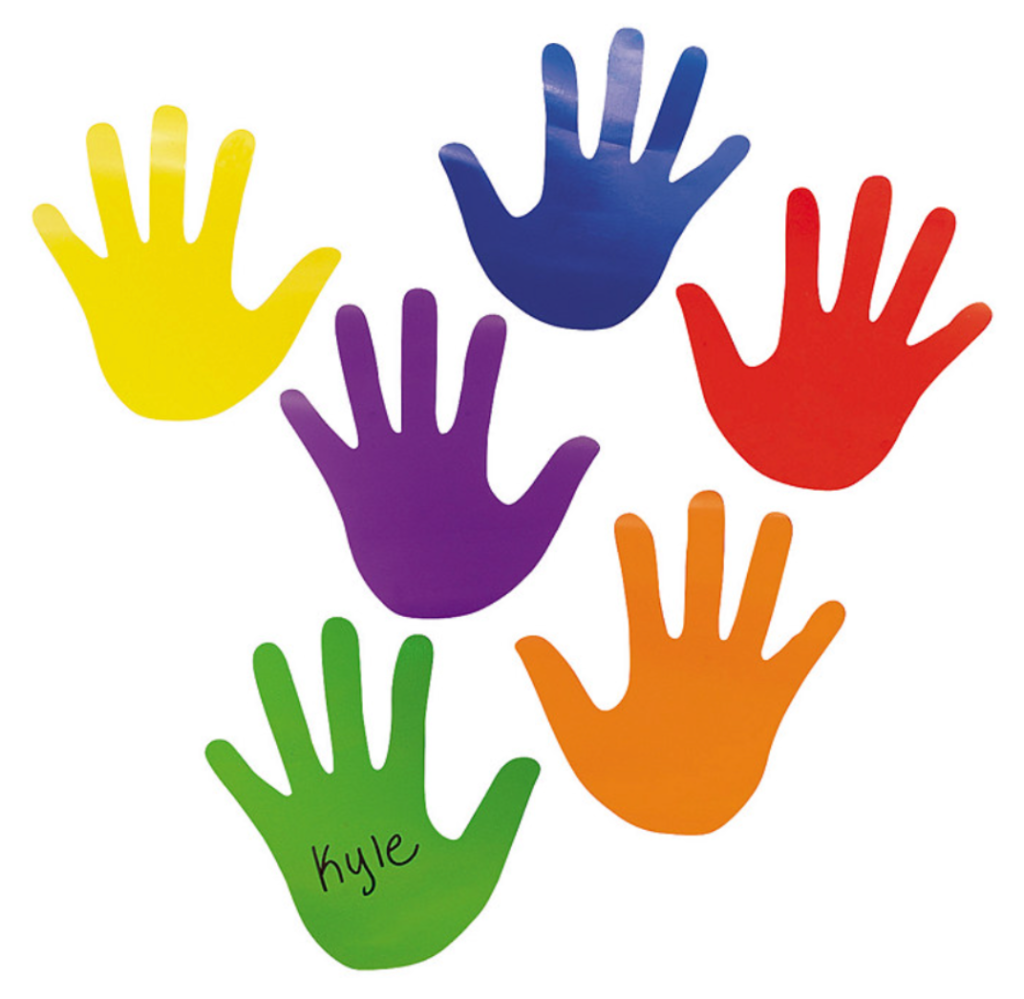
With children, it’s different, very different. We see children as innocent, helpless, vulnerable victims. It’s much harder to remain safely distanced emotionally. The worst call a cop can get is a call with an injured or non-breathing child. There is no way around the urgency of response and connecting emotions that follow.
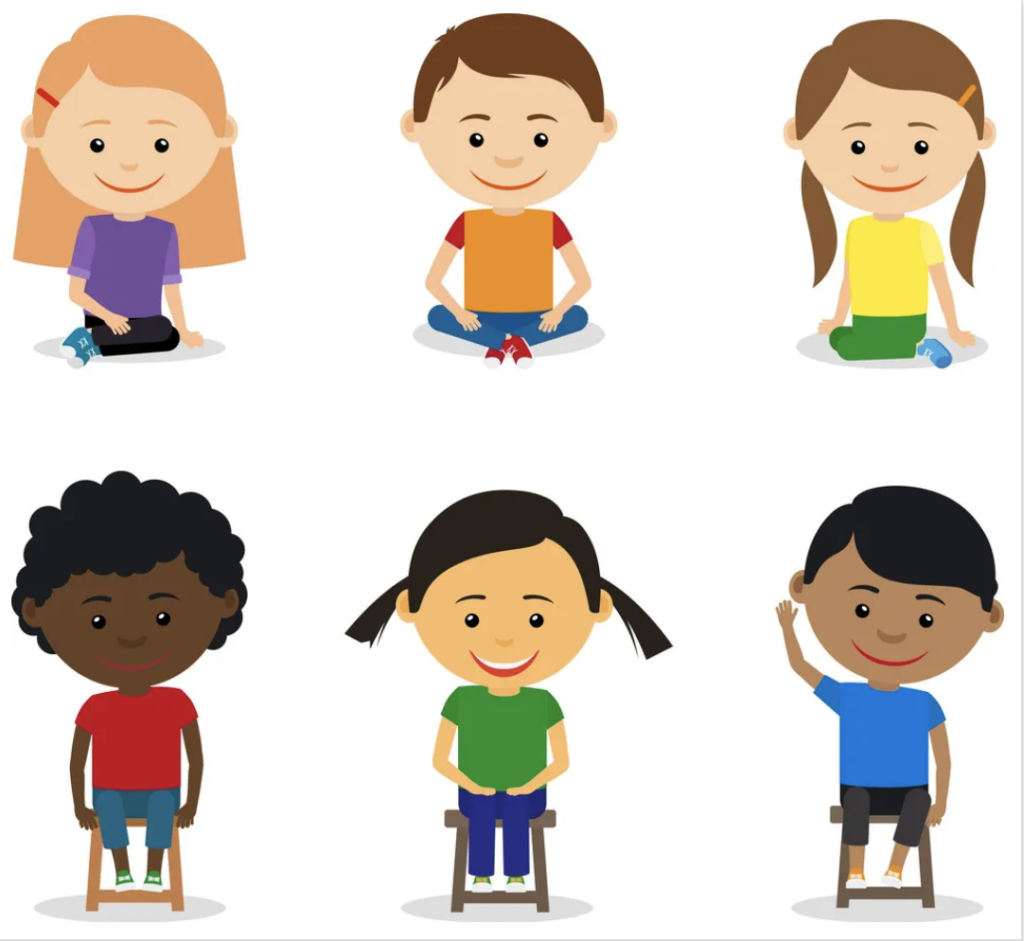
Every cop hearing the reedy beeping tone indicating only emergency communication is allowed on the main radio channel is itself a stimulator of stress. All who are listening to the radio are praying, the next communication from the officer arriving on scene will be a message notifying everything is actually ok with the child. This comforting message does not always come, but it is what everyone holds their breath for.
Details related to the child’s death may stick with the officer for the rest of their life. Future tragedies involving children may trigger previous incidents compounding the situation. Cases involving children are hard cases to move on from. I write this article intentionally without details. I am attempting to limit connection points to a particular case and trigger stress. Thanks friends for your hard work and dedication on even the toughest calls.
HANDLE IT
When most teenagers are directed to empty the trash in the house, unload the dishwasher, or clean their room, things aren’t usually accomplished to the satisfaction of the parent. With cops, what’s assigned is theirs. From beginning to end of shift, they need to handle everything in their beat.

Did you know nearly 80% of the contacts cops are required to make are unwanted by the people they are dispatched to handle?! This makes for some unpleasant interaction more times than cops would like.
“Handle it” might mean they take a report, it might be making an arrest, helping a citizen with mental illness, writing a ticket for no seatbelt, or texting while driving. Cops Handle It! They are the counselor, parent, comforter, person of reason, and resource 411. Police get the call to do the things most other people don’t want to do. Cops need our cooperation to keep peace and need our support as a reminder that more people are for them than against them.
THE BOMB dot Calm
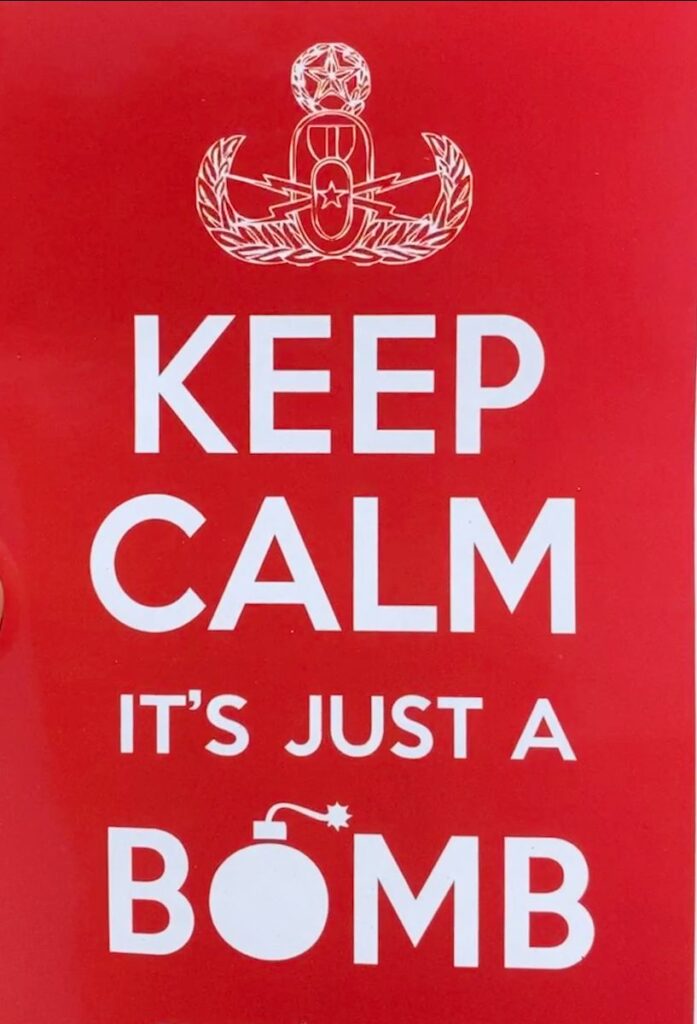
I was privileged to spend a day with the lead bomb specialist from AFT recently, and it was a blast! LOL The day started with a little tour of a museum / collection of confiscated or recovered explosives from all around the county. Then I had a closeup look at the new Bomb Disposal equipment that is taken to scenes to detonate unsafe materials if called out by local law enforcement agencies.

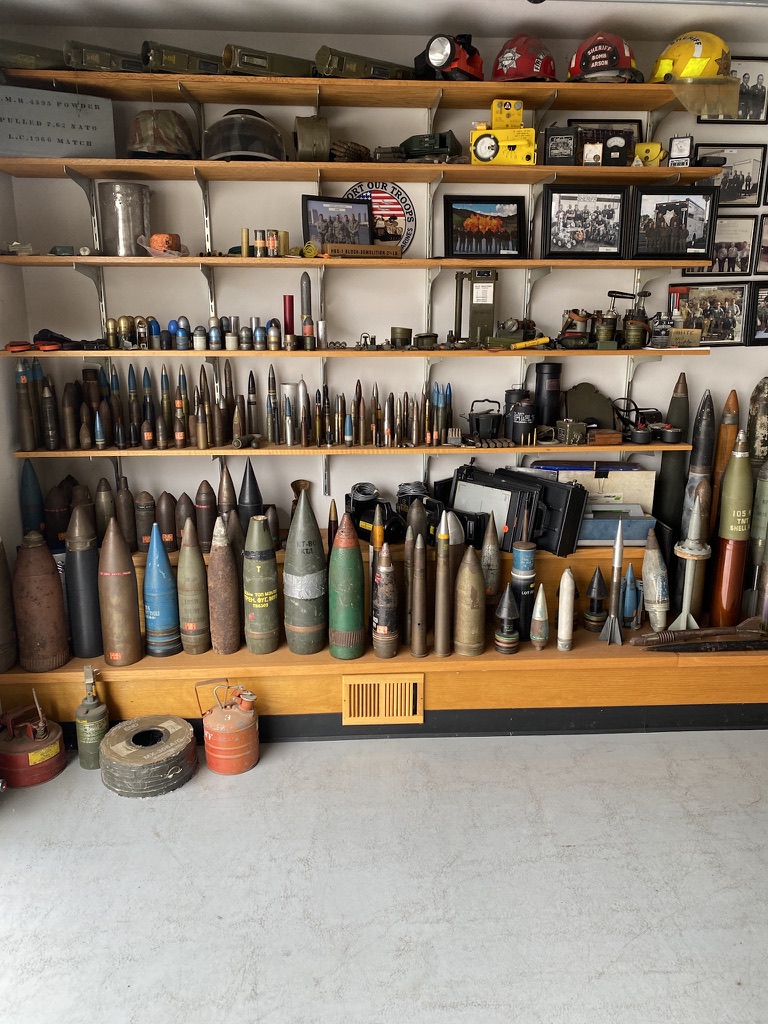
Then I had a closeup look at the new Bomb Disposal equipment that is taken to scenes to detonate unsafe materials if called out by local law enforcement agencies.
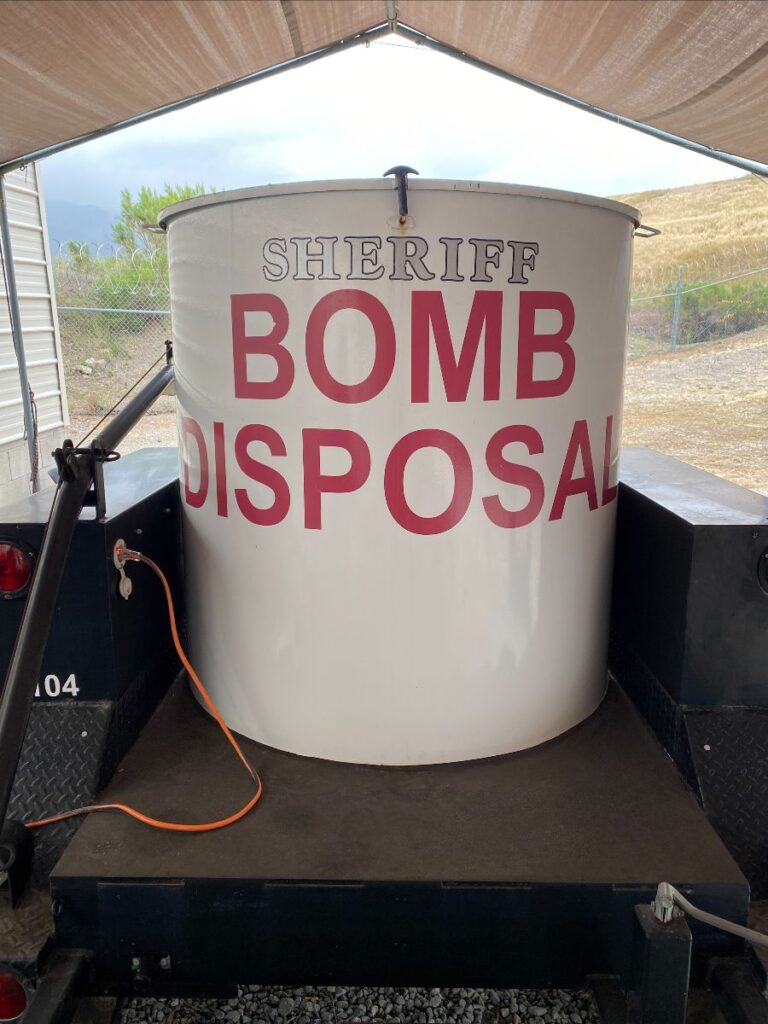
As the day progressed, we traveled out to a designated spot in the desert with about ten other bomb techs to destroy the collected items. I went along to experience the powerful fun and was not disappointed.

I watched as a team of Sheriff Department and ATF bomb experts inventoried the confiscated and collected fireworks, expired flares, explosives, and other incendiary devices. A plan was formulated to dispose of every item. There was a complex plan for effective destruction of the contraband to ensure the safety of everyone.
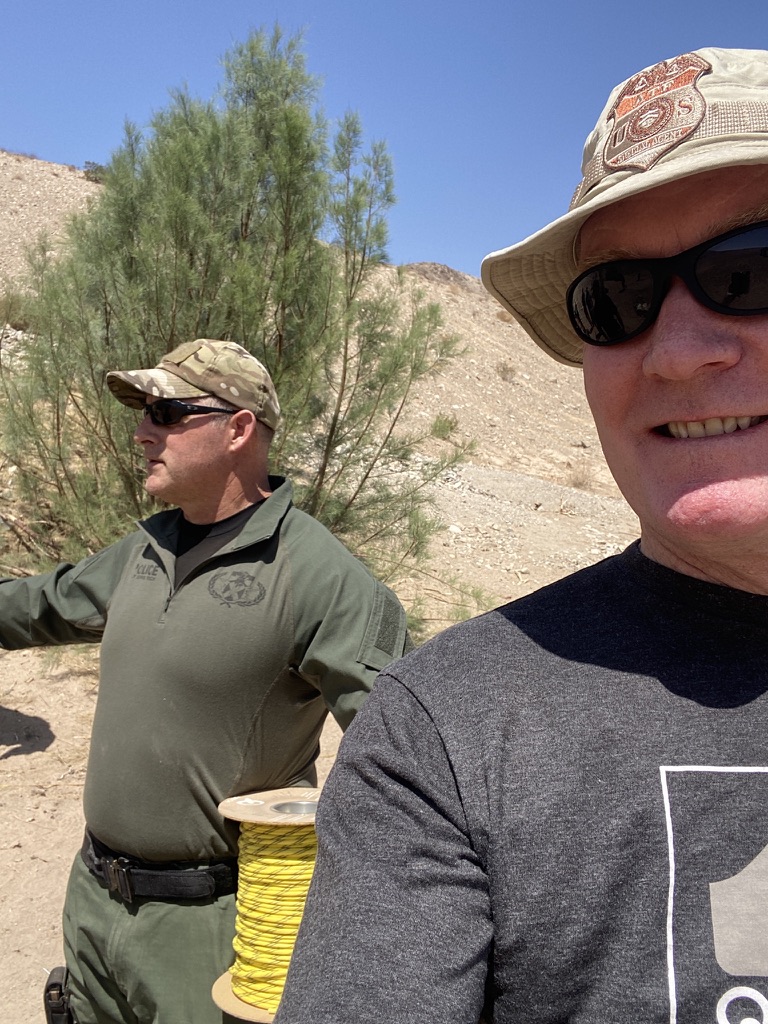

REALITY CHECK
Heather Glogolich, a police officer and trainer, presented her audience of cops with a reality check. I share part of her perspective and cop mindset. She says, “Here is the reality of if. We wake up every day and our job is to put on a bulletproof vest and carry a gun, knowing that we have a higher chance of not going home. I don’t take this for granted any single day of my entire career.
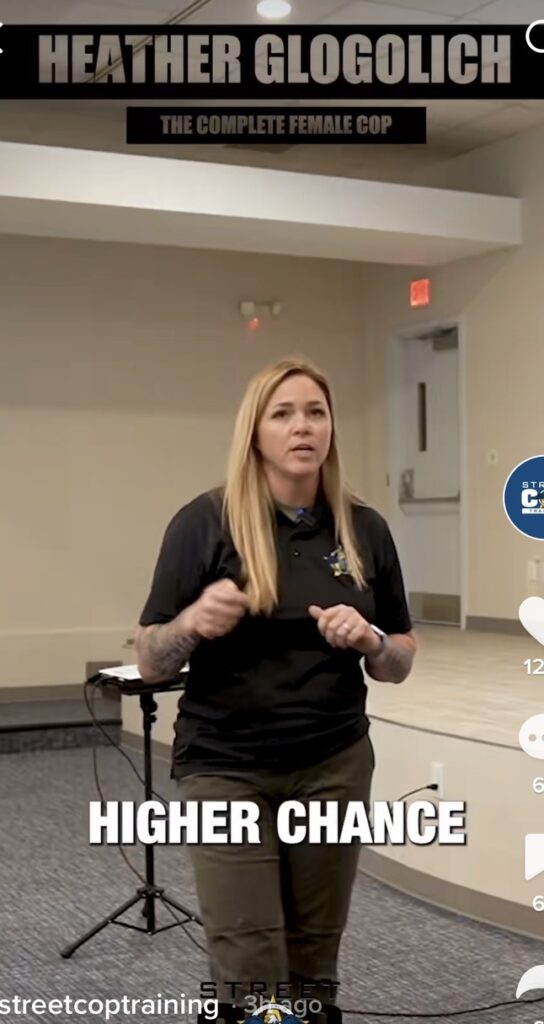
I wake up and I know that being a cop is a blessing and that I’ve been given a gift to help people. In reality, my whole family knows that it might be the last time they ever see me. When I walk out of my house, there’s a sign that says ‘Come Home Safe.’ My kids realize that when their father and I walk out the door, we may not come home – this is their reality. Other people are putting on business suits or construction hats. We put on a bulletproof vest every day to help us not die.”
In Conclusion
Thank you for taking the time to read these stories. They reflect some of the realities our cops face on a regular basis. Thank you also for your generosity in sponsoring Code 7. Your financial support of this organization allows me to be present for ride alongs and invest extra time with officers after a stressful event takes its toll.
